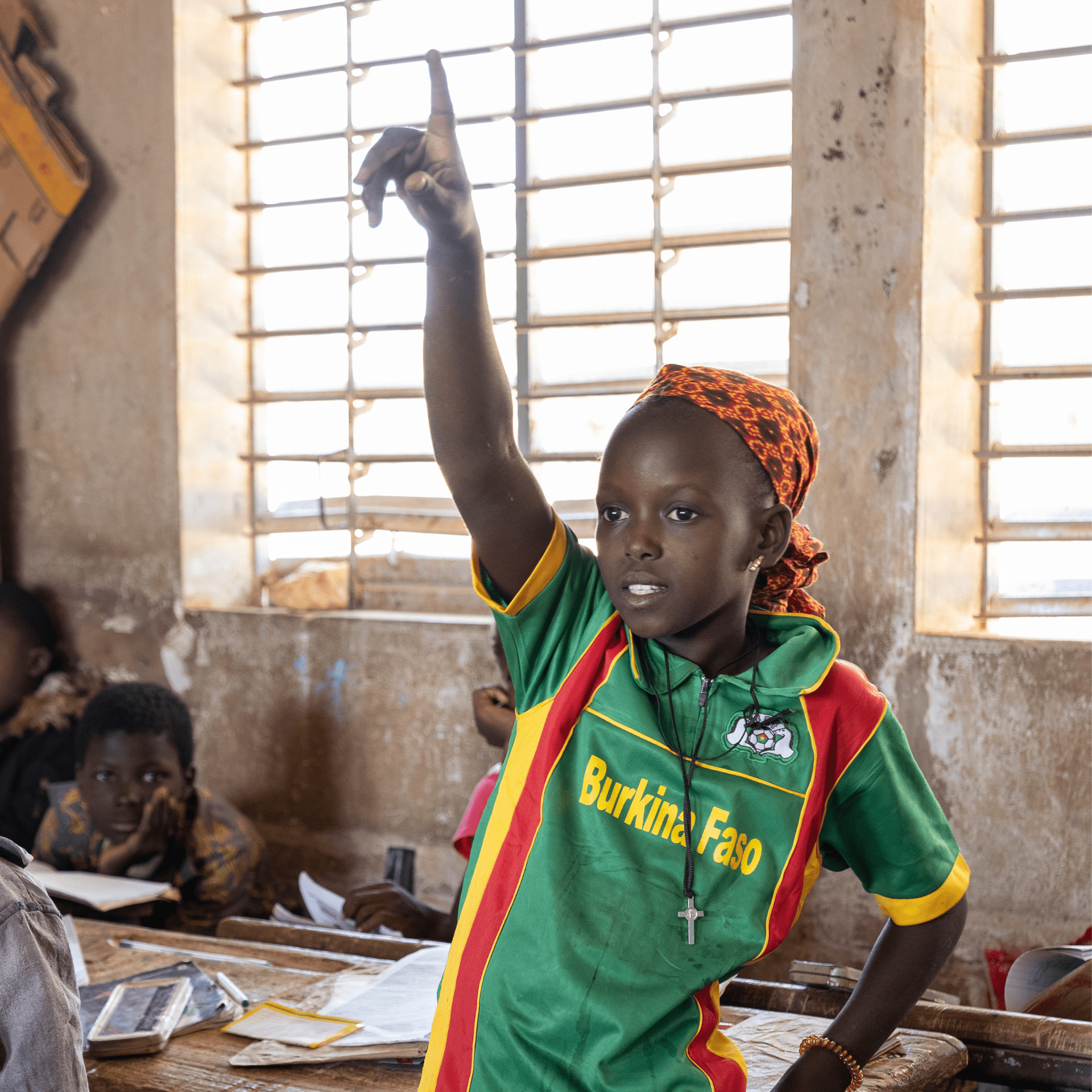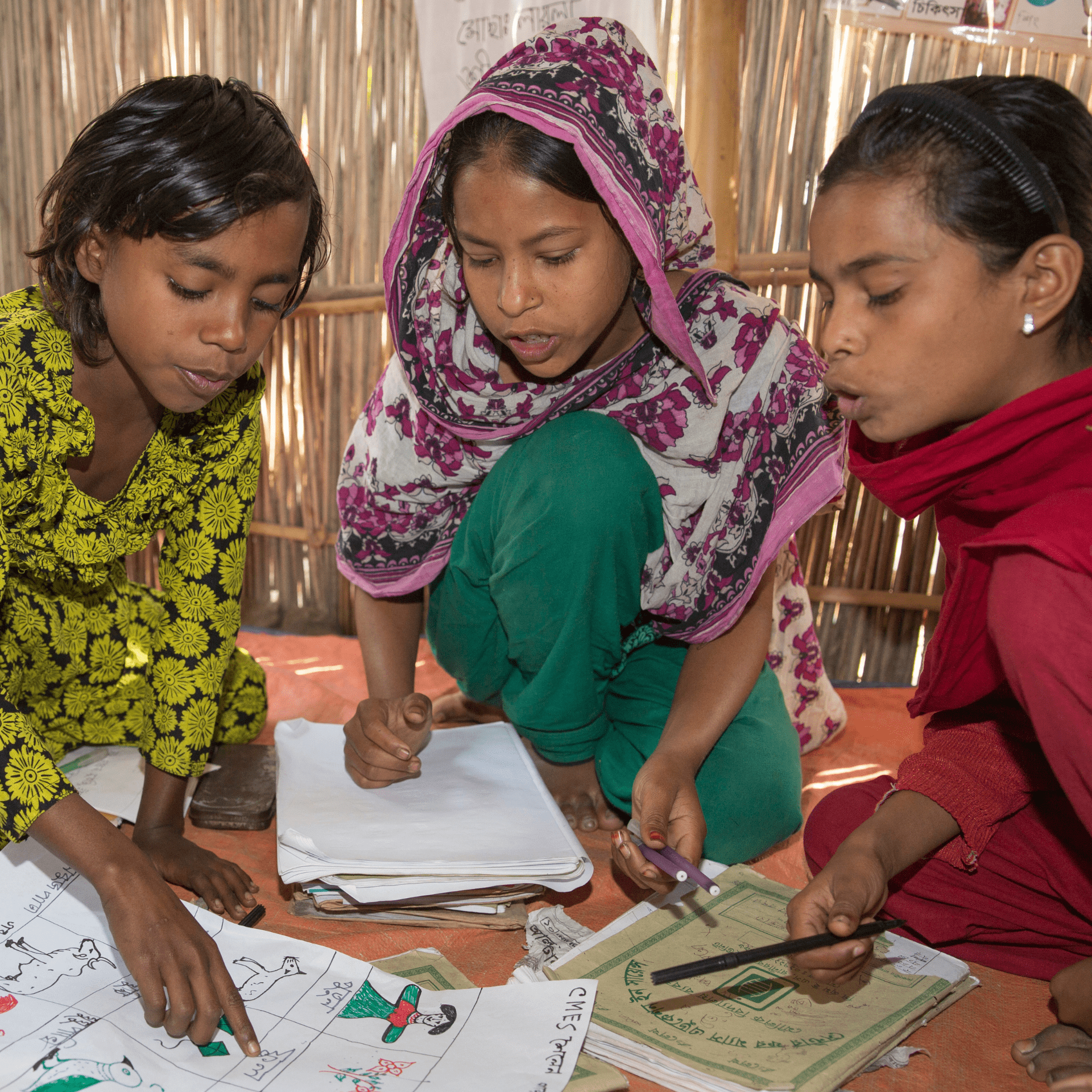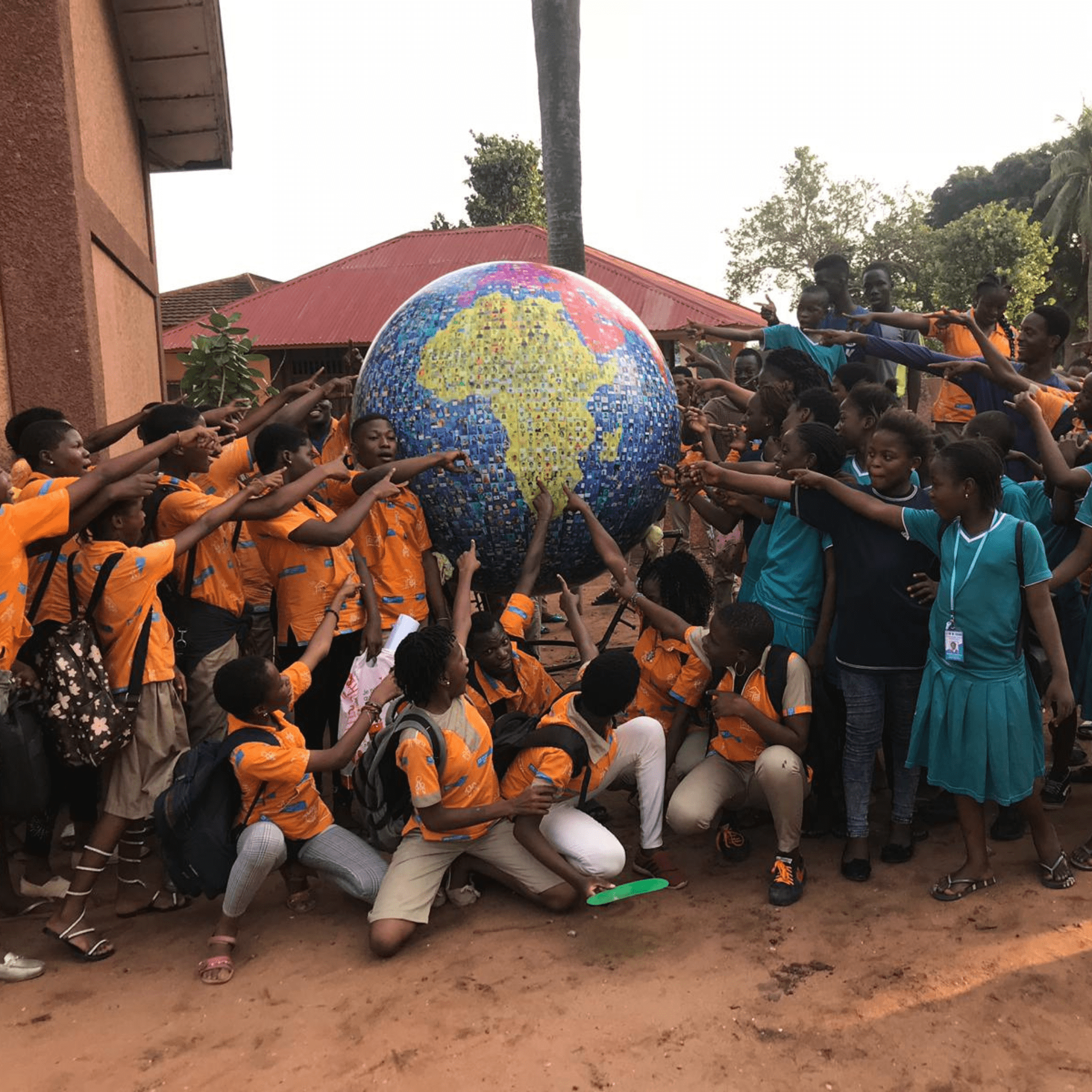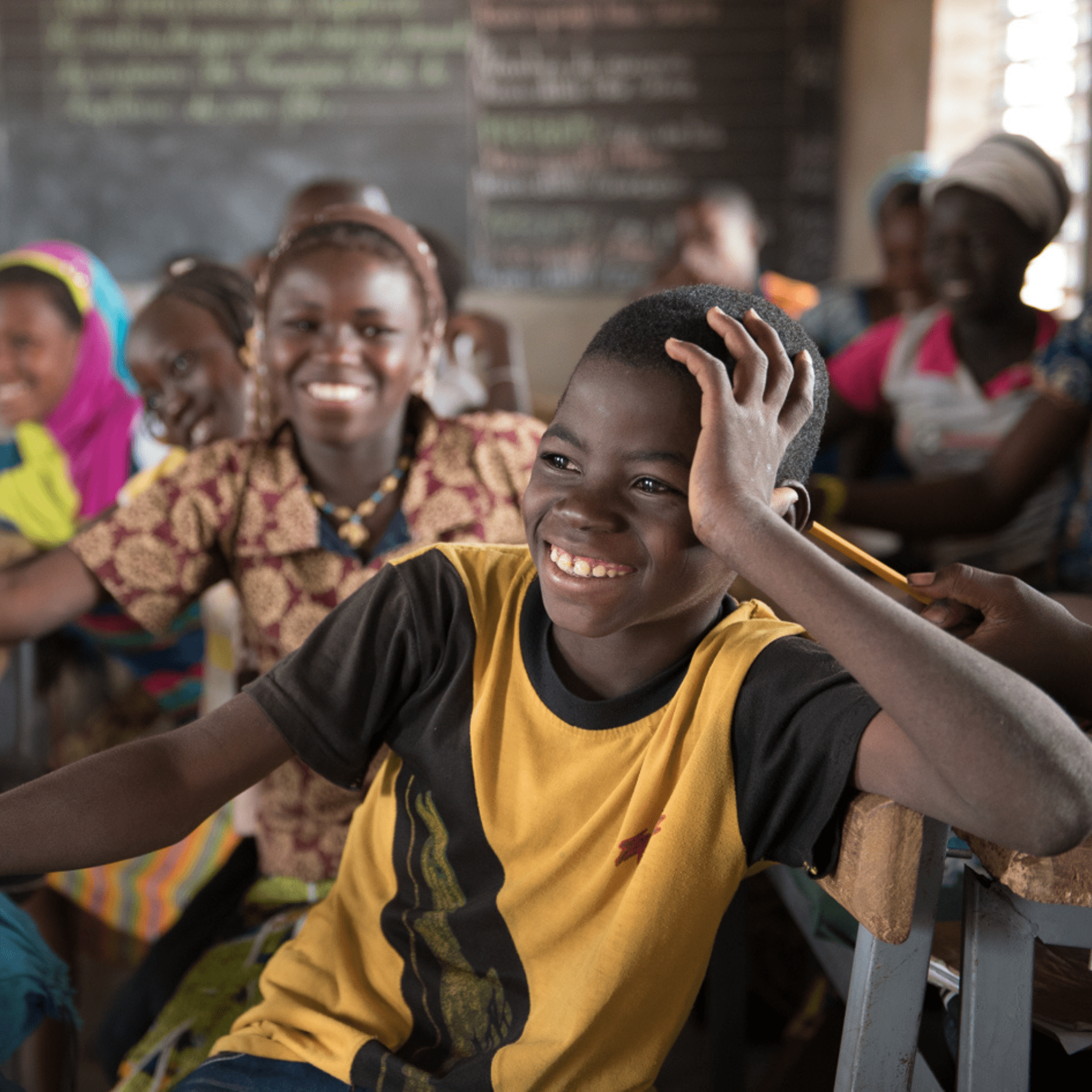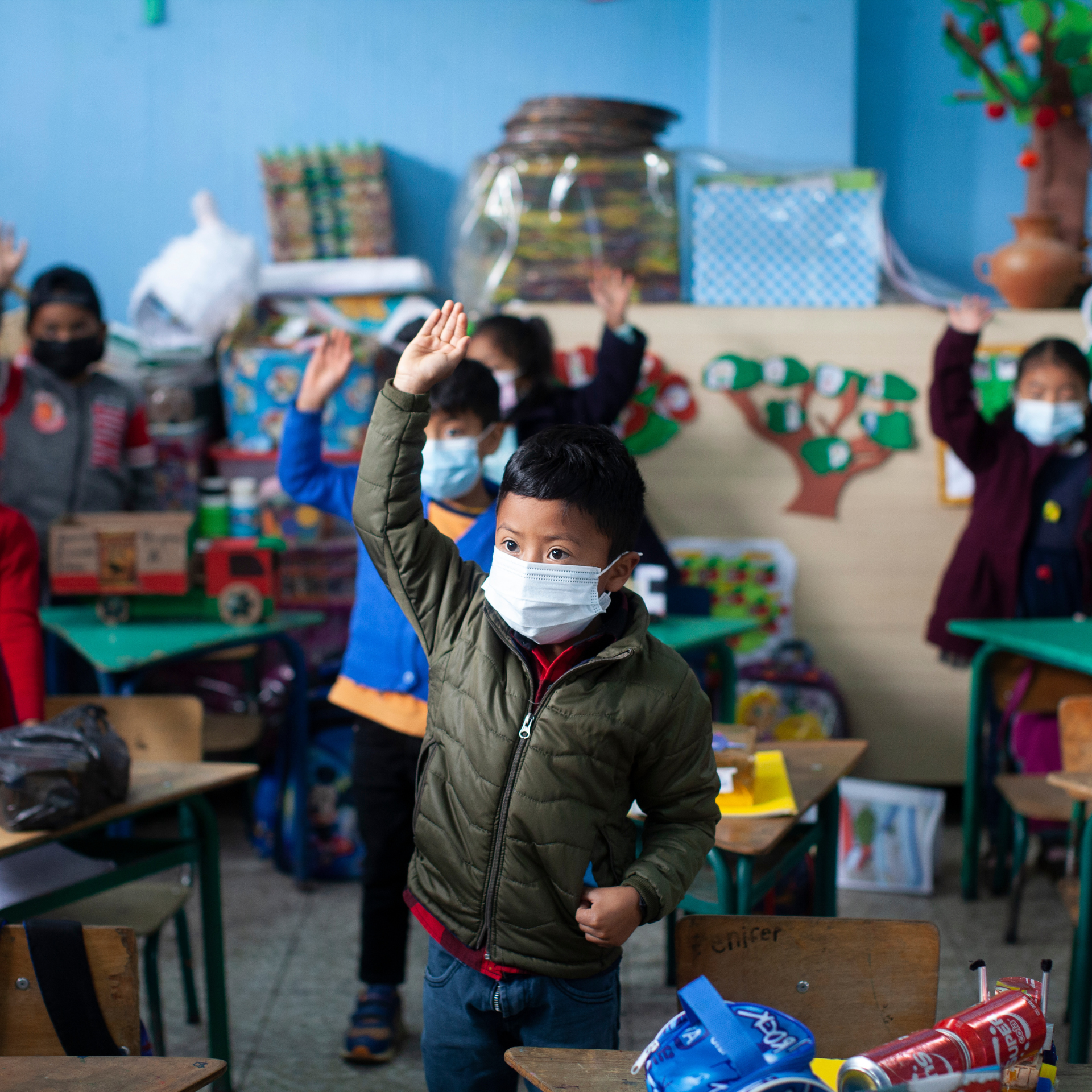
Education tailored to the specific needs of pupils
In our schools, we focus on quality education, based on an innovative, active teaching approach developed by our specialists following the many failures of the literacy campaigns of the 1960s. These were based on mechanical memorisation and mastery of a limited number of skills.
We advocate teaching in the local mother tongue and the official language of the country, adapted to the needs of the children and linked to the local culture. This approach stimulates children’s participation, encourages them to think and act for themselves and to solve problems independently.
5 principles for a quality education
1. Contextualisation
The content of the lessons is rooted in the pupils’ everyday life. We adapt school programmes after analysing educational needs and the problems encountered by local populations.
The subjects taught are seen as relevant by the local population because they meet their particular needs and can be put into practice in their daily lives. For example, children learn how to care for livestock.
Our principles in practice in the countries
Bangladesh
Thanks to our efforts aimed at improving the quality of education, which allows students to acquire not only basic knowledge but also practical knowledge applicable to their daily lives, Enfants du Monde has offered a better prospect to thousands of boys and girls.
Read moreBenin
We have set up a Master’s degree in Education Sciences, entitled “Master in bi/plurilingualism and interculturality”, to address recurring difficulties. Local languages are not sufficiently used in teaching, and subjects are often disconnected from the context and have no direct link with the lives and environment of children and young people.
Read moreBurkina Faso
For over thirty years, Enfants du Monde has brought its education programme to many regions of Burkina Faso with the goal of offering a better future to thousands of disadvantaged children.
Read moreGuatemala
In 2001, as part of the Bilingual and Intercultural Education Programme, Enfants du Monde began its intervention in the Alta Verapaz region to improve the quality of education and to train the teaching staff in bilingual and intercultural education.
Read moreNiger
Enfants du Monde is actively working in Niger to offer a second chance to children who have dropped out of school or left it too early. The aim is to improve quality and access to education.
Read moreChad
In order to help the children of Chad and enable them to receive , is improving the national education system in a sustainable way, on behalf of the Swiss Agency for Development and Cooperation.
Read more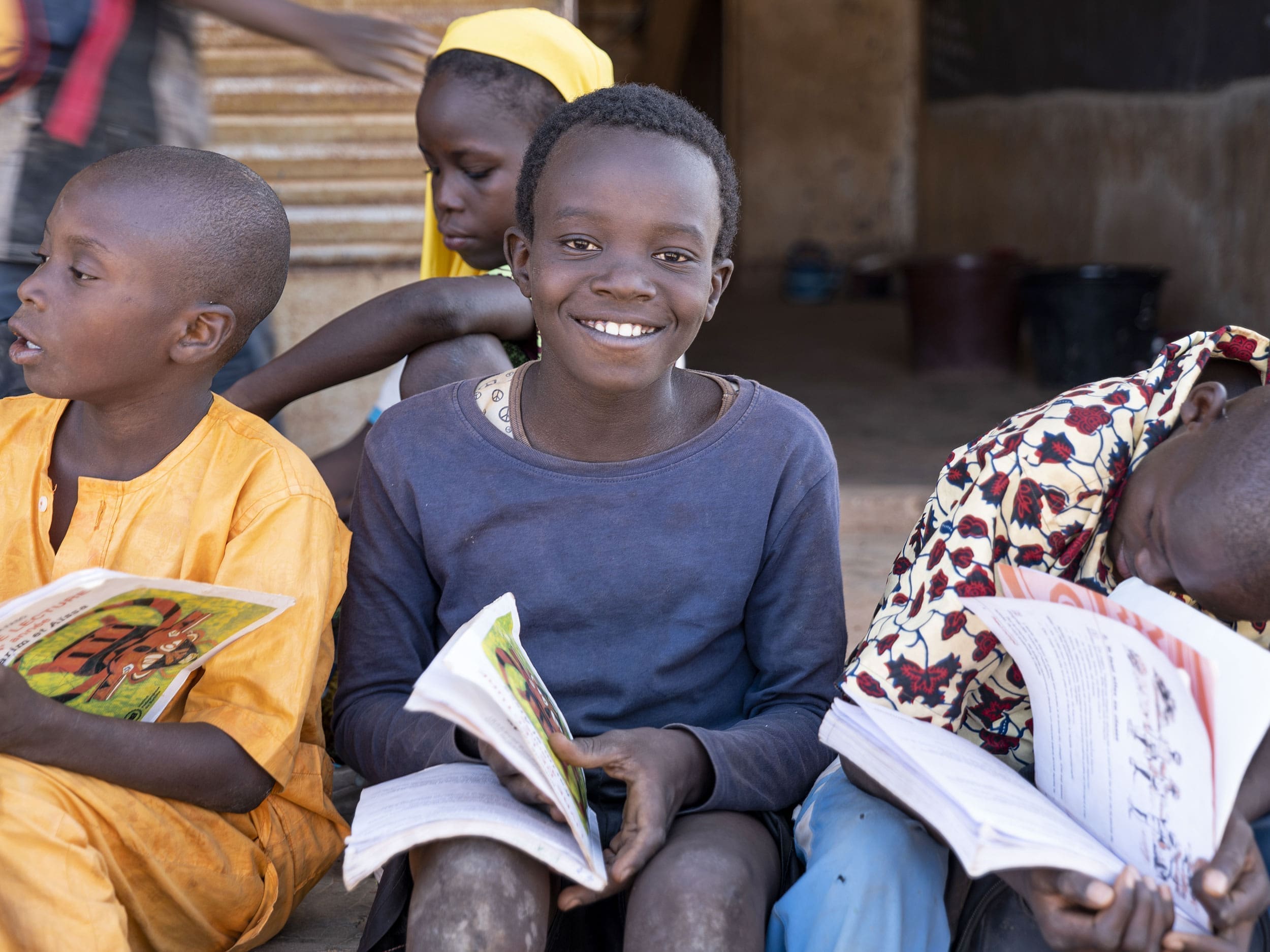
My donation makes a difference
I provide 250 children in Guatemala with a bilingual textbook to help them progress.
I am offering a day of in-service training in bilingual education to 5 teachers in Burkina Faso.
I fund continuing professional training in bilingual education for 17 teachers in Guatemala to improve the quality of their lessons.




